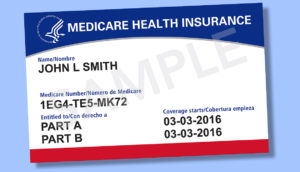 Today’s top story: How frugal fashionistas can stay on trend. Also in the news: What Biden or Trump could do for your student loans, why you need an investment policy statement, why you need an investment policy statement, and college student argue distance learning should cost less.
Today’s top story: How frugal fashionistas can stay on trend. Also in the news: What Biden or Trump could do for your student loans, why you need an investment policy statement, why you need an investment policy statement, and college student argue distance learning should cost less.
How Frugal Fashionistas Can Stay on Trend
Style doesn’t have to cost a fortune.
What Biden or Trump Could Do for Your Student Loans
A look at both plans.
Why You Need an Investment Policy Statement
Start with your goals.
College students argue distance learning should cost less as some schools are charging more
Students say they aren’t getting what they paid for.
 Today’s top story: Are Medicare Advantage plans worth the risk? Also in the news: 4 ways women can invest in other women, 4 market headwinds facing first-time buyers, and 9 million Americans will get letters about missing stimulus checks.
Today’s top story: Are Medicare Advantage plans worth the risk? Also in the news: 4 ways women can invest in other women, 4 market headwinds facing first-time buyers, and 9 million Americans will get letters about missing stimulus checks. Today’s top story: Your credit history opens doors – here’s how to build it. Also in the news: what happens to your debt if your school closes for good, and exit strategies for young adults forced home during COVID-19.
Today’s top story: Your credit history opens doors – here’s how to build it. Also in the news: what happens to your debt if your school closes for good, and exit strategies for young adults forced home during COVID-19.  Today’s top story: For lower-credit homeowners, refinancing is harder, but not hopeless. Also in the news: 4 home insurance pitfalls to avoid during hurricane season, survey finds majority of parents want personal finance taught in high schools, and how to decide between a 15-year and 30-year mortgage.
Today’s top story: For lower-credit homeowners, refinancing is harder, but not hopeless. Also in the news: 4 home insurance pitfalls to avoid during hurricane season, survey finds majority of parents want personal finance taught in high schools, and how to decide between a 15-year and 30-year mortgage. Today’s top story: Should I pay for my hotel using cash, points or both? Also in the news: A new episode of the SmartMoney podcast on fake reviews and saving too much, 5 travel writers draft their favorite airlines, and where to get relief if there isn’t a second stimulus check.
Today’s top story: Should I pay for my hotel using cash, points or both? Also in the news: A new episode of the SmartMoney podcast on fake reviews and saving too much, 5 travel writers draft their favorite airlines, and where to get relief if there isn’t a second stimulus check.  Today’s top story: What Biden on Trump could do for your student loans. Also in the news: Is moving now your best financial pros and cons, how to get a personal loan without perfect credit, and what to do when you can’t afford food.
Today’s top story: What Biden on Trump could do for your student loans. Also in the news: Is moving now your best financial pros and cons, how to get a personal loan without perfect credit, and what to do when you can’t afford food. Today’s top story: When debt relief does more harm than good. Also in the news: New ways to get more money for your old car, back-to-school tips for avoiding child identity theft, and the top sacrifices made by ‘super savers’.
Today’s top story: When debt relief does more harm than good. Also in the news: New ways to get more money for your old car, back-to-school tips for avoiding child identity theft, and the top sacrifices made by ‘super savers’.